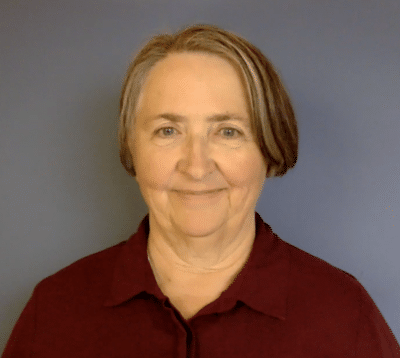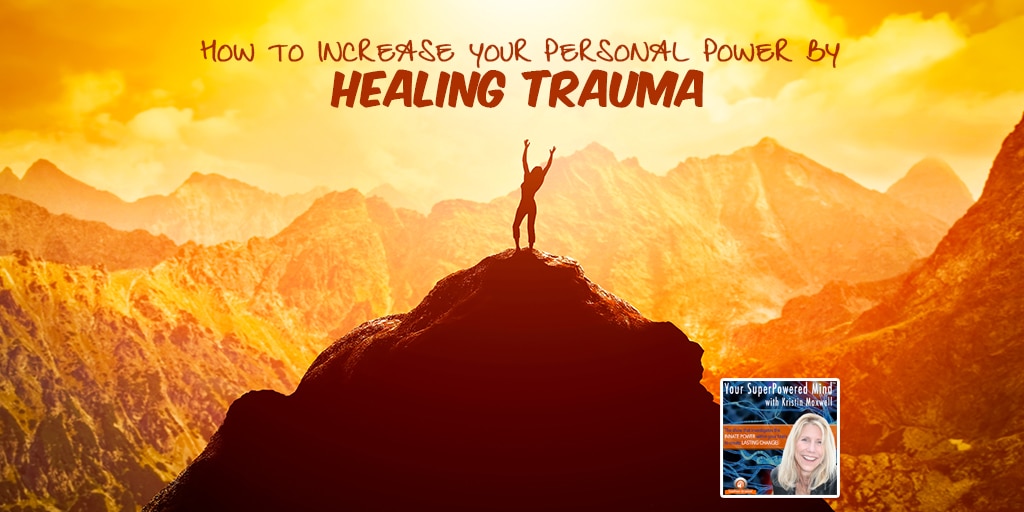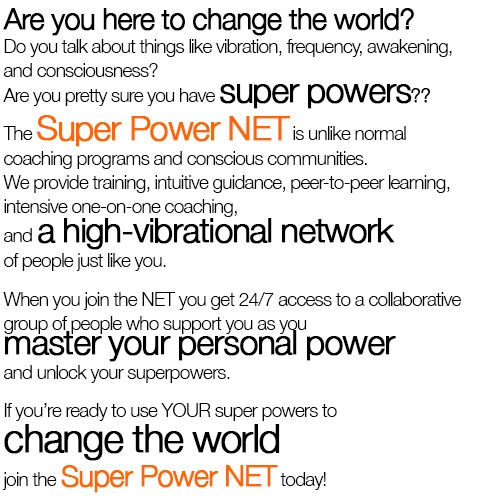
Hi everyone. Welcome to Your SuperPowered Mind. I’m your host, Kristin Maxwell, and today, we’re going to be exploring the topic of how to increase your personal power by healing trauma. And we’re going to be talking to Lynn Fraser. Lynn has 20 years experience teaching meditation in addition to being a senior teacher in the Himalayan Yoga Meditation tradition. She’s also a senior facilitator with Scott Kiloby’s Living Inquiries and Natural Rest. Lynn also specializes in working as a facilitator work with clients’ one on one online to heal trauma. She’s also the author of Friends with Your Mind: How to Stop Torturing Yourself with Your Thoughts, which is exactly along the lines of what I am hoping we all can learn how to do.
Lynn, welcome to Your SuperPowered Mind.
Well, thank you for having me, Kristin. I’m really excited to be here.
Yes. I know you have so much to offer. My first question always, Lynn, is what super power did you uncover as a result of mastering your mind?
If I had to put that into a sentence or two, I would have to say something around being kind and compassionate to myself and being on my own side. And the title of my book, Friends with Your Mind: How to Stop Torturing Yourself with Your Thoughts, that kind of wraps it up actually. That describes it quite well.
Wow, that’s great. That’s a huge topic.
It is.
How did you discover this ability to actually be on your own side? Was it through something in your past or something that you learned? How did that come up?

A lot of things that happened in our childhood lead us to believe that nobody really cares.
Well, there are several threads of how that has worked. One of them is that I’ve learned a lot about trauma. So I seem to have a skill in researching all of the current thinking around trauma and recovering from traumatic events. That number one trauma is a lot more than being in the military or having a car accident or even being physically abused. It’s a lot of emotional neglect. A lot of things that happened in our childhood lead us to believe that nobody really cares. That we’re not lovable. We’re not worthy. There’s a lot of people that have that kind of core efficiency belief.
Right! And you know what? This is very interesting that I love that you’re already making this distinction is that often, right when we think of trauma, we think of some significant event as having happened. And yet it seems when with my work with my clients and with myself of course that when things happen to us that are not necessarily traumatic to us as adults, we have still somehow interpreted them to mean something that actually really is traumatic to us as a developing being. Is that your experience?
I had a big event. I was physically assaulted when I was riding my bicycle to work about 15 years ago and I survived. Somebody stopped and the guy left and I survived the attack. However, when I was healing from that, I had PTSD developed from that and I kind of came back to a fairly okay place with that. But then several years later, I started looking into the work of Dr. Gabor Maté who’s a trauma expert. And I started to realize that in fact, maybe I hadn’t healed all the way through. And I started to really understand developmental trauma, the effect of adverse childhood experiences, which has started to be well known now. And also at the time that even when I was in treatment for the assault, a lot of what was thought to be good therapy was to be working with our thoughts.
It’s talk therapy. And now through some of the work that Gabor Maté and Bessel van der Kolk, a lot of really cutting edge trauma therapists are discovering that trauma is stored in the body and that we have to heal through the body. And so that was something that was very helpful to me even at the time because by the time when I was assaulted, I had been meditating for about 12 years and I knew a lot about the mind. And I also was teaching yoga and I knew how to relax my body. I knew how to work with my breath. And so that combination of being able to be present inside and to start to work with healing some of the traumatic effects of childhood neglect was really, it was a foundation for doing a deeper healing. And to realize that the catastrophic thinking and the anxiety and numbness and addictions earlier in my life were all a result of the childhood experiences that I’d had where I was sometimes it was more along the shaming and public kinds of things and other times it was just that experience in my family where I didn’t really feel like nobody really cared.
And one of the things that Gabor Maté talks about a lot too is that the parents don’t mean to be harming there. It’s an effect of their own unhealed trauma. But that there’s a disconnection that happens. And that was what I was really working with is the disconnection from other people and from myself. And so the healing of that is that I became connected with myself and I became friendly within and that coming back to where we started.
Right. So it seems to me because with the idea of trauma is that may be probably all of us then have some kind of childhood trauma. Because unless there are some people who are able, who I guess parents who have themselves treated their trauma soma or their own issues that they’re able to be fully present.

I think it’s true that we’ve all experienced things that caused us to disconnect from ourselves.
Well, I think it’s true that we’ve all experienced things that caused us to disconnect from ourselves. In a healthy culture, we would have a wide range of adults available for children. And the pressure that a lot of parents are under right now is pretty intense. A lot of times there’s divorce or both parents are working. There’s not a lot of time and energy for the adults, let alone for the children. But the good news around that is it only takes about 30% of good connection in order to be enough for a child. And so you don’t have to be a perfect parent, but you do need to be a connected parent. And for a child to come in from school and have somebody his face light up and get a hug, I mean that’s really 90% of it right there. That we need to be present for our children and for ourselves. And we can’t be present if were dissociated or if we’re lost in fear or anxiety or something like that. So we really do need to do our own work as well.
Wow. We are going to have to go for a break right now and when we come back, I would really like to go into what is it, what are some of the procedures and processes that you take people through to let go of some of these symptoms of trauma. So before we go, can you let people know where they can learn more about your work?
Sure. It’s all through my website, lynnfraserstillpoint.com. And I have a daily free online meditation practice to this, a great place to start. And that’s on my website as well.
Great. Thanks Lynn. When we come back, we are going to talk to Lynn some more about how to increase your personal power by healing trauma.
To listen to the entire show click on the player above or go to the SuperPower Up! podcast on iTunes.
Podcast: Play in new window


